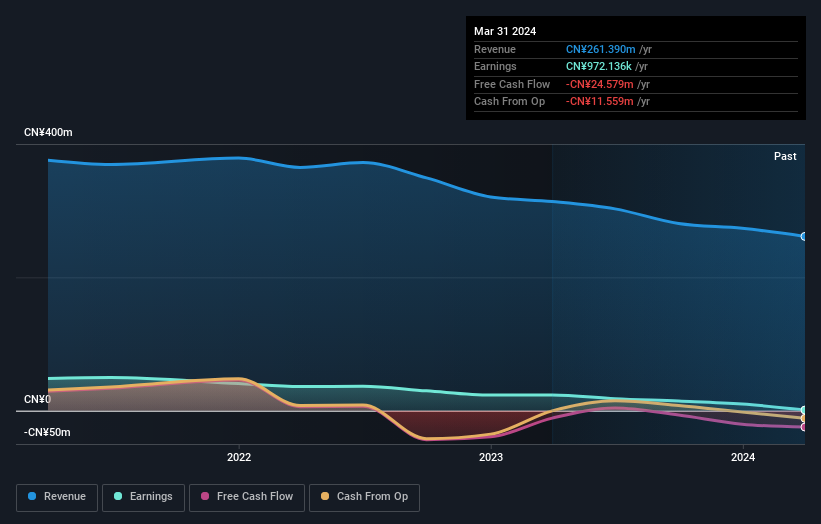Individual investors invested in Rongxin Education and Culture Industry Development Co., Ltd. (SZSE:301231) up 18% last week, insiders too were rewarded

Key Insights
- Rongxin Education and Culture Industry Development's significant individual investors ownership suggests that the key decisions are influenced by shareholders from the larger public
- A total of 10 investors have a majority stake in the company with 50% ownership
- 30% of Rongxin Education and Culture Industry Development is held by insiders
A look at the shareholders of Rongxin Education and Culture Industry Development Co., Ltd. (SZSE:301231) can tell us which group is most powerful. We can see that individual investors own the lion's share in the company with 43% ownership. That is, the group stands to benefit the most if the stock rises (or lose the most if there is a downturn).
Following a 18% increase in the stock price last week, individual investors profited the most, but insiders who own 30% stock also stood to gain from the increase.
In the chart below, we zoom in on the different ownership groups of Rongxin Education and Culture Industry Development.
See our latest analysis for Rongxin Education and Culture Industry Development

What Does The Institutional Ownership Tell Us About Rongxin Education and Culture Industry Development?
Many institutions measure their performance against an index that approximates the local market. So they usually pay more attention to companies that are included in major indices.
Rongxin Education and Culture Industry Development already has institutions on the share registry. Indeed, they own a respectable stake in the company. This suggests some credibility amongst professional investors. But we can't rely on that fact alone since institutions make bad investments sometimes, just like everyone does. When multiple institutions own a stock, there's always a risk that they are in a 'crowded trade'. When such a trade goes wrong, multiple parties may compete to sell stock fast. This risk is higher in a company without a history of growth. You can see Rongxin Education and Culture Industry Development's historic earnings and revenue below, but keep in mind there's always more to the story.

Rongxin Education and Culture Industry Development is not owned by hedge funds. The company's CEO Yihua Wang is the largest shareholder with 26% of shares outstanding. Xi'an Lelequ Investment Management Limited Partnership Enterprise is the second largest shareholder owning 6.2% of common stock, and Hongbing Yan holds about 4.6% of the company stock. Interestingly, the third-largest shareholder, Hongbing Yan is also a Member of the Board of Directors, again, indicating strong insider ownership amongst the company's top shareholders.
We did some more digging and found that 10 of the top shareholders account for roughly 50% of the register, implying that along with larger shareholders, there are a few smaller shareholders, thereby balancing out each others interests somewhat.
While studying institutional ownership for a company can add value to your research, it is also a good practice to research analyst recommendations to get a deeper understand of a stock's expected performance. As far as we can tell there isn't analyst coverage of the company, so it is probably flying under the radar.
Insider Ownership Of Rongxin Education and Culture Industry Development
While the precise definition of an insider can be subjective, almost everyone considers board members to be insiders. Company management run the business, but the CEO will answer to the board, even if he or she is a member of it.
Most consider insider ownership a positive because it can indicate the board is well aligned with other shareholders. However, on some occasions too much power is concentrated within this group.
Our most recent data indicates that insiders own a reasonable proportion of Rongxin Education and Culture Industry Development Co., Ltd.. Insiders have a CN¥443m stake in this CN¥1.5b business. We would say this shows alignment with shareholders, but it is worth noting that the company is still quite small; some insiders may have founded the business. You can click here to see if those insiders have been buying or selling.
General Public Ownership
The general public-- including retail investors -- own 43% stake in the company, and hence can't easily be ignored. While this size of ownership may not be enough to sway a policy decision in their favour, they can still make a collective impact on company policies.
Private Company Ownership
It seems that Private Companies own 6.2%, of the Rongxin Education and Culture Industry Development stock. Private companies may be related parties. Sometimes insiders have an interest in a public company through a holding in a private company, rather than in their own capacity as an individual. While it's hard to draw any broad stroke conclusions, it is worth noting as an area for further research.
Next Steps:
While it is well worth considering the different groups that own a company, there are other factors that are even more important. Consider for instance, the ever-present spectre of investment risk. We've identified 4 warning signs with Rongxin Education and Culture Industry Development (at least 2 which are a bit unpleasant) , and understanding them should be part of your investment process.
Of course this may not be the best stock to buy. Therefore, you may wish to see our free collection of interesting prospects boasting favorable financials.
NB: Figures in this article are calculated using data from the last twelve months, which refer to the 12-month period ending on the last date of the month the financial statement is dated. This may not be consistent with full year annual report figures.
New: AI Stock Screener & Alerts
Our new AI Stock Screener scans the market every day to uncover opportunities.
• Dividend Powerhouses (3%+ Yield)
• Undervalued Small Caps with Insider Buying
• High growth Tech and AI Companies
Or build your own from over 50 metrics.
Have feedback on this article? Concerned about the content? Get in touch with us directly. Alternatively, email editorial-team (at) simplywallst.com.
This article by Simply Wall St is general in nature. We provide commentary based on historical data and analyst forecasts only using an unbiased methodology and our articles are not intended to be financial advice. It does not constitute a recommendation to buy or sell any stock, and does not take account of your objectives, or your financial situation. We aim to bring you long-term focused analysis driven by fundamental data. Note that our analysis may not factor in the latest price-sensitive company announcements or qualitative material. Simply Wall St has no position in any stocks mentioned.
Have feedback on this article? Concerned about the content? Get in touch with us directly. Alternatively, email editorial-team@simplywallst.com
About SZSE:301231
Rongxin Education and Culture Industry Development
Rongxin Education and Culture Industry Development Co., Ltd.
Flawless balance sheet very low.


